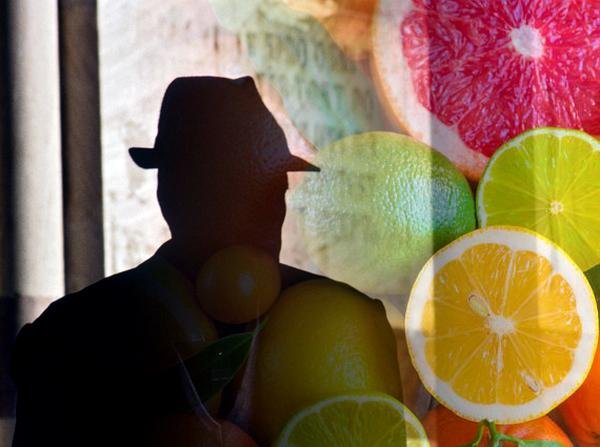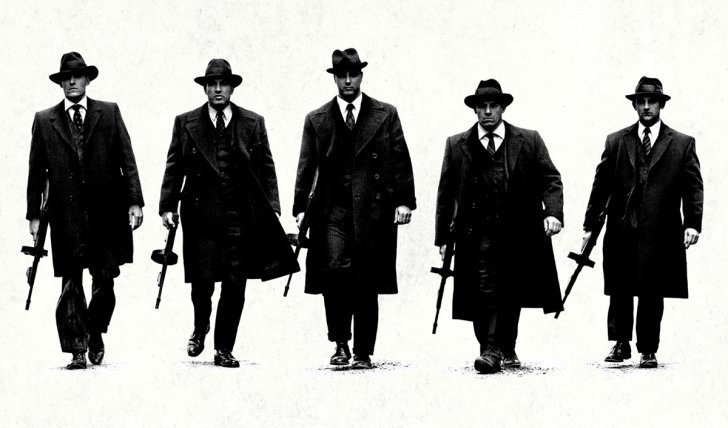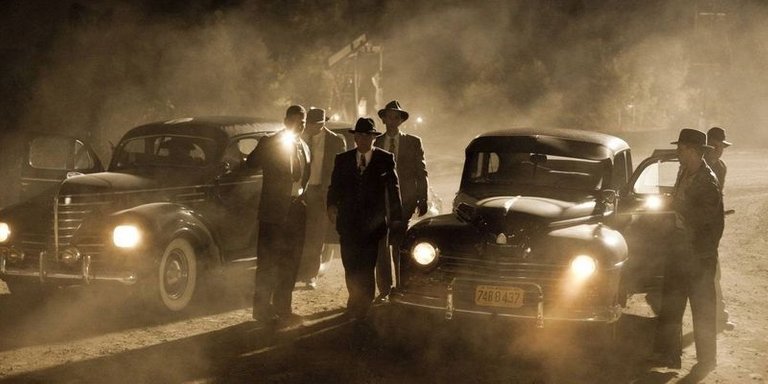Half of what we know about the mafia, is in the phrase "I will make him an offer, from which he can not refuse." The second half is a remote view of the guys who control the shadow business and solve problems by force. In fact, if we discard the cinematic aesthetics of the gangster image, the mafia is a consolidated group whose goal (like any other enterprise) is to earn more money. The only difference is that the Mafia does this in a purely illegal way.
In different countries there is a type of organized criminal communities. And each of them has its own traditions and rules. But they are all united by the common term "mafia". Nevertheless, this word in the classical definition has its clear meaning and national roots, and, before it became a household name, the mafia called criminals exclusively from Sicily. Today we will tell you some more interesting facts about the mafia, which you probably did not know about. And do not worry: after this information, no one will put your horse's head in your bed.
The history of the mafia began with lemons

As we said above, the mafia originated in Sicily. It happened around the middle of the 19th century, and in less than 150 years this criminal organization spread its influence far beyond its island and even Italy. Many researchers are still puzzling over how this OPG managed to launch its predatory paws in almost all spheres of life around the world. According to some historians, it all started with lemons. So it turned out that the Sicilian soil is very favorable for the growth of citrus fruits. This was noticed by local farmers in the second half of the XIX century and began to grow lemon trees. The potential of this industry was enormous: the affectionate southern sun favored agriculture, and access to the Mediterranean provided ample opportunities for export. But the obstacle for entrepreneurs were greedy representatives of the upper class, who, apparently under the old feudal habit, strove to oppress the poor peasants once again. In addition, the state did not intervene and did not protect farmers from encroachments on their business. Then these same producers of lemons decided to hire private security organizations that were supposed to ensure their safety. And since the conditions for running such a business were ideal, the money flowed along the river. Thus, the ordinary Sicilian peasants acquired great strength and influence, which subsequently took shape in the familiar image of the mafia. This story is very revealing, as it illustrates the direct connection between the prosperity of crime and the inaction of the state. After all, if the Sicilian government at that time had better defended the interests of its citizens, then it would not have to resort to arms. As one of the most influential bosses of the mafia of the 20th century, Calogero Vizzini, correctly said, "the mafia was born because of the inability of the state to use its monopoly on power."
The word "mafia" has Arab roots, which are not related to crime. There are many versions of the origin of the word "mafia", each of which is equally elegant and believable. According to one of them, the mafia is an abbreviation for the Italian phrase Morte Alla Francia, Italia Anela ("Death of France - Sigh, Italy"), which Sicilian insurgents shouted during confrontation with the French invaders in the XIII century.
According to another version, the word "mafia" is associated with combat detachments, which hired farmers to protect their property. At that time in Sicily they were called "mafi", which in Arabic slang meant "impertinent" or "unruly". In both versions of the origin of this term lies the militant subtext, which emphasizes the independence and strength of the modern mafia.
The Mafia was inspired by the secret Sicilian organization

One of the reasons for the power of the Mafia, in addition to high discipline, is its strict organization. The structure of this community has a clear hierarchy, which unquestioningly obeys all its participants. There is a hypothesis that the mafia partially took over from the secret organization of murderers, which was formed in the 12th century in response to the oppression of the working class by the medieval Sicilian elite. This organization traded in contract killings, and its secrecy and internal order was ensured by a strict vertical management, where its lower members were impeccably obeyed by the elders. Presumably this organization had a secret shelter, from where they conducted their affairs, and it was located in the crypt of the Palermo church.
The Mafia helped the Allied forces in World War II

Here the saying "The enemy of my enemy is my friend" fits perfectly. It so happened that both the Allied forces and the Sicilian Mafia had one common enemy in the person of Benito Mussolini. The fact is that long before the start of World War II, namely in the second half of the 1920s, Mussolini was actively fighting the mafia, because he, like all dictators, did not want to share power. And, as is known, the Mafiosi had a great influence in the state up to that time. And now, when it's time to make retribution, the Sicilian gangsters immediately took advantage of this. When the allied forces were to land in Sicily in order to liberate the island from the fascists, the mafia, through its main representative in America, Lucky Luciano, informed the American army about the location of the enemy troops. Thanks to this information, Sicily managed to be released with the least losses.
The mafia has its own "Ten Commandments"
In 2007, the head of the Sicilian mafia Salvatore Lo Piccolo was arrested near the city of Palermo. During the search among the documents the investigators found a piece of paper with the set of rules written on it. As it turned out, it was a kind of "code of honor" for the mafia, which was the basis of the order of this organization. This is what these laws are:
- No one has the right to enter into a conversation with a member of the Mafia, unless he is represented by another member.
- Never enter into a relationship with the wife of your friend or another member of the mafia.
- Do not communicate with the police only if the police officer is not corrupt.
- Do not visit clubs or bars.
- Your duty is always to be at the disposal of the Cosa Nostra, even if your wife gives birth.
- Always come to appointments on time.
- You have to treat your wives with respect.
- Never lie to the members of your organization.
- You can not assign money that belongs to other members of the Cosa Nostra or their relatives.
- The "Cosa Nostra" can not include those who have relatives in the police, whose relative or relative is changing their spouse and who does not adhere to well-known moral principles. Observance of these commandments for each member of the mafia is unshakable, and the violation of one of them is strictly punished inside the organization. In some cases, death can be a punishment.
There is a rite of initiation into the mafia
A member of the Mafia is not everyone who cooperates with this organization in one way or another. This is a special title, implying a high status in criminal circles, which is accompanied by both certain privileges and obligations. In 1994, a member of the Mafia Maurizio Avola, who was a kind of staff killer, began to cooperate with the investigation and issued several secrets related to the "Koza Nostroi". In particular, he spoke about a special ritual of initiation into the ranks of the members of the Mafia, to which Maurizio himself was subjected in 1983. In the presence of the godfather, he read the oath of loyalty and pierced his finger with a needle, and then sprinkled his blood image of a saint, who then surrendered to the fire. So approximately and there is a dedication to the mafia. This ceremony has a clear religious connotation, which once again proves the importance of respecting this tradition and the sanctity of the mafia title.
Congratulations @lapin124! You received a personal award!
You can view your badges on your Steem Board and compare to others on the Steem Ranking
Vote for @Steemitboard as a witness to get one more award and increased upvotes!